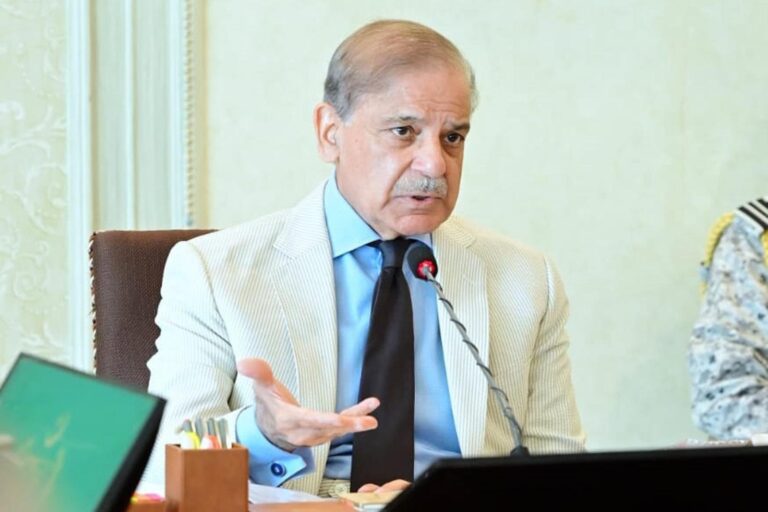Prime Minister Shehbaz Sharif on Thursday described Pakistan’s appointment to several key United Nations Security Council (UNSC) counterterrorism bodies as a “matter of great pride” and a reflection of the international community’s trust in the country’s counterterrorism credentials.
The premier’s remarks came a day after Pakistan was elected Vice-Chair of the UNSC’s Counter-Terrorism Committee and designated to chair the Council’s 1988 Taliban Sanctions Committee in 2025.
In a post on X (formerly Twitter), the prime minister said that Pakistan’s selection as Chair of the UNSC Sanctions Committee under Resolution 1988 (2011), Vice-Chair of the 1373 (2001) Counter-Terrorism Committee, and Co-Chair of the Informal Working Group on documentation and sanctions, affirms international recognition of Pakistan’s “strong and unwavering commitment to eradicate this global menace.”
It is a matter of great pride that Pakistan has been appointed as Chair of UNSC Sanctions Committee under Res.1988(2011); Vice Chair of of the 1373 (2001) Counter-Terrorism Committee; as well as Co-Chair of Informal Working Group (IWG) on documentation and sanctions.
These key…— Shehbaz Sharif (@CMShehbaz) June 5, 2025
“These key appointments validate the international community’s confidence and trust in Pakistan’s counterterrorism credentials,” he stated, adding that the roles also acknowledged Pakistan’s sacrifices as a frontline state in the global fight against terrorism.
Highlighting the human and economic cost of terrorism, the prime minister noted that Pakistan had endured over 90,000 casualties and suffered economic losses exceeding $150 billion. “As one of the biggest victims of terrorism, Pakistan’s sacrifices in combating this scourge have been second to none,” he added.
Read more: Pakistan becomes co-chair of UNSC Counter-Terrorism Committee
Shehbaz Sharif expressed hope that these appointments would strengthen Pakistan’s engagement with the UN’s multilateral counterterrorism framework and reaffirm its resolve to contribute to global peace and security.
Separately, Pakistan’s Permanent Mission to the United Nations welcomed the appointments, stating that the development represented an acknowledgment of the country’s active and constructive role in the UN system, particularly its engagement as an elected member of the Security Council.
Pakistan Appointed to Different Subsidiary Bodies of the UN Security Council
United Nations, June 4, 2025— In a significant diplomatic development, Pakistan has been appointed as Chair of the UN Security Council Committee established pursuant to resolution 1988 (2011), which… pic.twitter.com/gGJO2tNp9d
— Permanent Mission of Pakistan to the UN (@PakistanUN_NY) June 4, 2025
“These appointments are an international recognition of Pakistan’s counterterrorism efforts,” the mission said in a statement.
It added that Pakistan remained committed to working closely with the United Nations and other member states in upholding the UN Charter and contributing to global counterterrorism efforts through international collaboration.
According to the updated list of chairs for the UNSC’s subsidiary bodies, Denmark will assume the chair of the 1267 ISIL (Da’esh) and Al-Qaida Sanctions Committee in 2025, with Russia and Sierra Leone appointed as vice-chairs. Algeria will lead the 1373 Counter-Terrorism Committee, while France, Pakistan, and Russia will serve as its vice-chairs.
Also read: PM Shehbaz Sharif orders united response against India’s IWT water violation
In addition to chairing the 1988 Sanctions Committee in 2025, Pakistan will work alongside Guyana and Russia, who have been named vice-chairs of the same committee. The 1988 Committee oversees the implementation of sanctions—including asset freezes, travel bans, and arms embargoes—on individuals and entities linked to the Taliban that pose a threat to peace and stability in Afghanistan.
Pakistan’s recent election as a non-permanent member of the Security Council for the 2025–26 term further cements its diplomatic standing at the UN. The country secured 182 votes out of 193 in last year’s General Assembly election, significantly surpassing the required two-thirds majority.
The UN Security Council is composed of 15 members, including five permanent members—China, France, Russia, the United Kingdom, and the United States—with veto power, and ten non-permanent members elected for two-year terms. The current non-permanent members are Algeria, Denmark, Greece, Guyana, Pakistan, Panama, South Korea, Sierra Leone, Slovenia, and Somalia.

